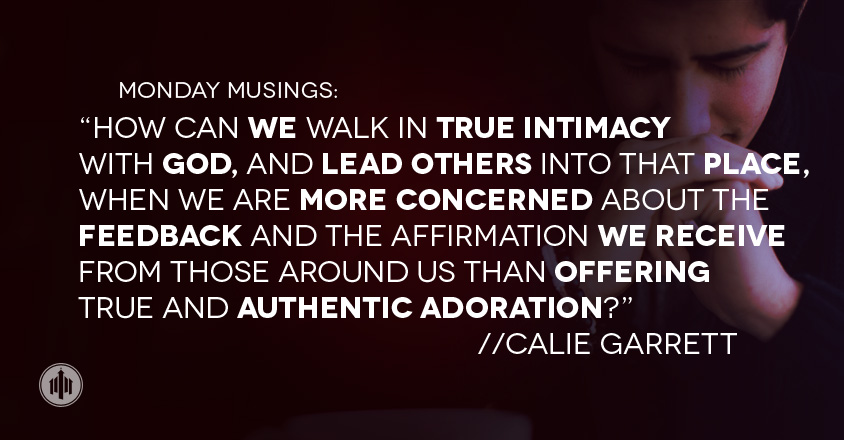 Imagine the scene:
Imagine the scene:
There’s a big celebration that’s been put together to honor a dear friend who is greatly loved, respected, and sought after in their community. Everyone has gathered in a beautiful banquet hall at a local venue to participate in celebrating this dear friend. The room is exquisitely decorated, people are dressed in their best black tie attire, a skilled pianist is offering whimsical background music, hors d’oeuvres are beautifully plated and the room is abuzz with expectation and conversation. When the time comes for the celebration to begin, though, many of the people in attendance begin to share with one another how they plan to celebrate this friend who is seated on a small stage toward the front of the hall. Some even put together elaborate demonstrations of their appreciation and love for this friend, seeking the accolades of those in attendance, never actually positioning their adoration and respect towards the individual. A few people approach the friend as this awkward activity is taking place, offering trinkets, meaningful hugs, kind words, perhaps even a few tears of joy for all the things this friend had done for them; few approached him personally with genuine love and affection. The overwhelming method of celebration that took place that night, however, was in lateral affirmation from those whose opinion, honestly, didn’t matter anyway.
This feels extremely uncomfortable to me. I’ve been in situations like this before, where the person or organization being celebrated wasn’t actually being celebrated—where those doing the celebrating were instead the ones being celebrated. It was deflating to the person/organization and felt inauthentic to me as someone in attendance.
I wonder how often this happens with our worship of Jesus.
As worship leaders, it’s easy to lose the sole focus of our ministry: to minister to the heart of God. We can get caught up in the production, the perception, making sure that those who aren’t walking with Jesus yet can still be able to engage, the minute details, and the dynamics of the teams we lead. We can also become so consumed with how others feel about our ministry that we forget that, truthfully, the only person we should be trying to affirm and adore is Jesus Himself.
It reminds me of that well-intentioned friend we all have who is so desperately in love with their spouse or girlfriend that they must shout it from all the social media mountaintops so that everyone on God’s green earth will know amazing, perfect, smoking hot, and eco-friendly their lovely woman is.
The problem is two-fold:
1. Honestly, nobody cares that much about the over-the-top feelings that person felt must be so eloquently articulated with ALL CAPS, pictures and emojis. If anything, repeated posts like that start to feel obnoxious and people begin to ignore them (or fall prey to Instagram envy or whatever other self-diagnoses we can come up with).
2. The person about whom these posts are shared ultimately receives less affirmation than the person who posted them. It becomes about affirming the love-struck friend who chose just the right combination of WORDS, emojis, and pictures to garner the most “likes” and comments, not about the woman underneath it all who probably just wanted a personal encounter with her love-struck husband.
Jesus said in John 5:44, “How can you believe, when you receive glory from one another and do not seek the glory that comes from the only God?”
I take that as Jesus saying: How can you walk in true intimacy with me—and lead others into that place—when you are more concerned about the feedback and the affirmation you receive from those around you than offering true and authentic adoration to me?
As worship leaders, what does it look like to seek only after the glory of God, to work towards affirming His heart above all else, and to draw those around us into meaningful encounters of bringing adoration to Jesus? Does it mean we forget about the production value of our services, or don’t work hard in our rehearsals to get the music just right, or invest less in our mastery of our skill? Absolutely not! Those are all important facets of creating environments where authentic encounters can take place between the Bride of Christ and Jesus. But it does require that we examine our heart motivations in how and why we bring adoration to Jesus: Am I doing this or saying this because I want to minister to God’s heart, or because I want it to draw attention to me or my ministry in some way?
May we rest in the fact that we have nothing to prove or to earn; we simply get to offer our most authentic worship to Jesus and teach others to do the same. This is our ministry, and this is what brings Him the most joy.




